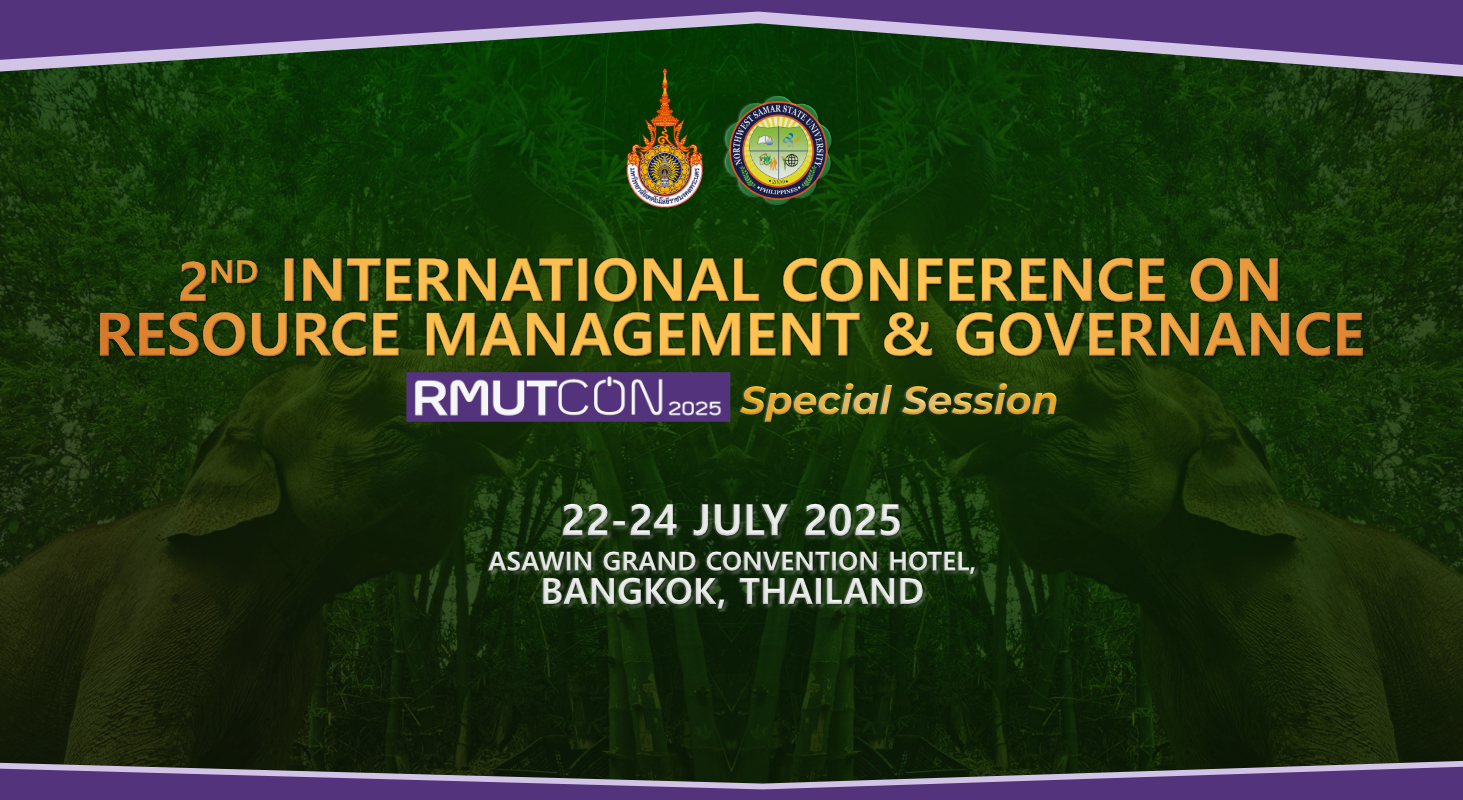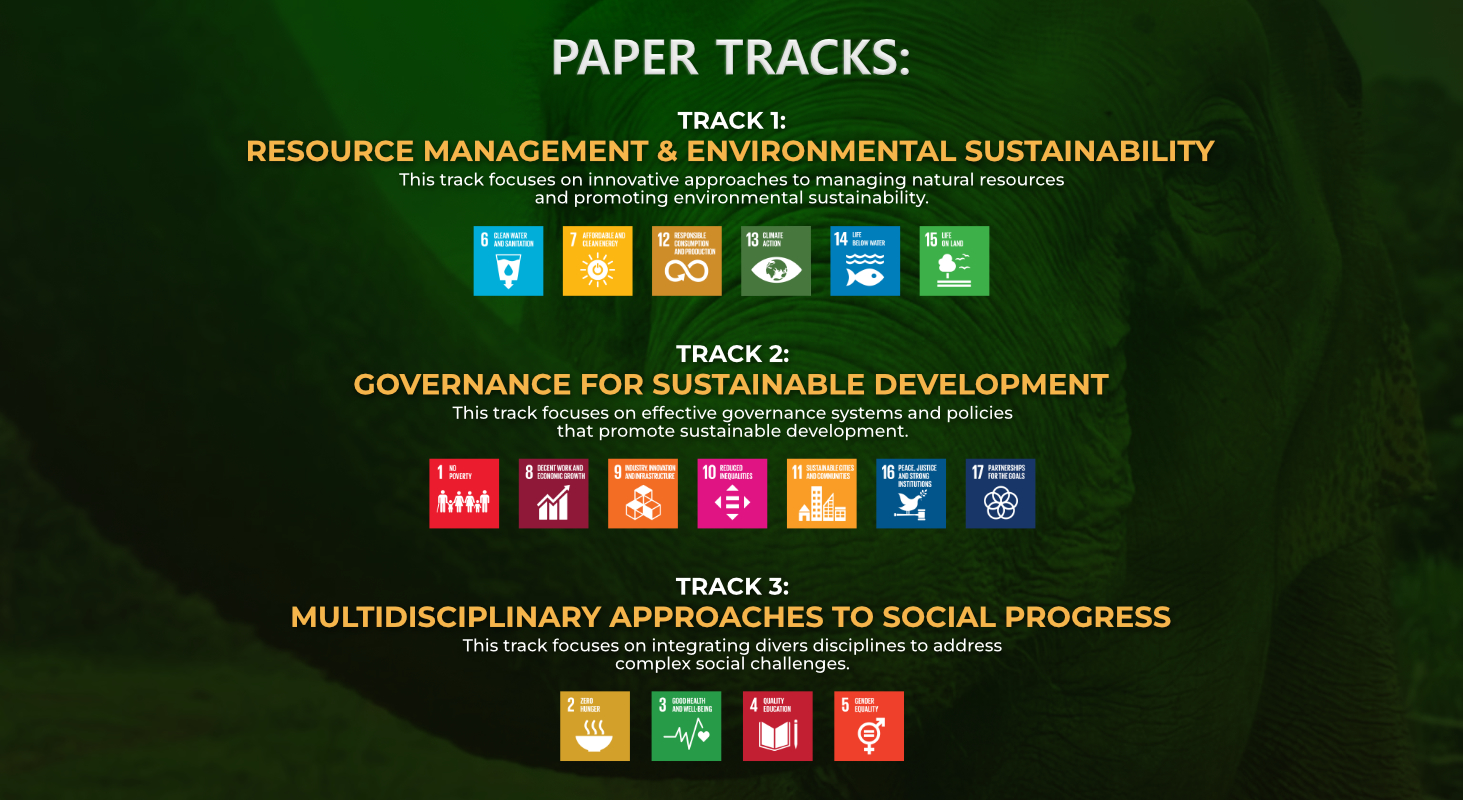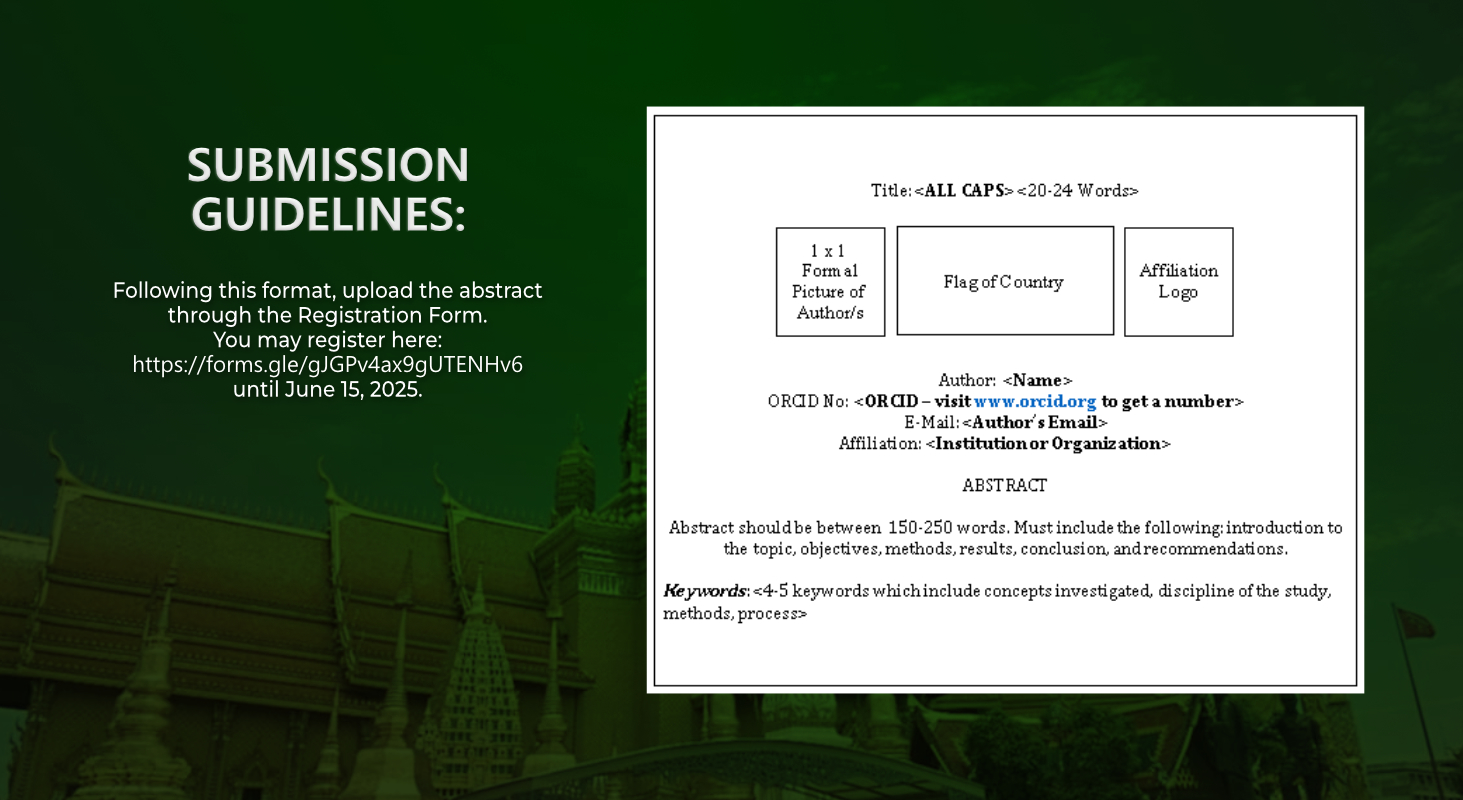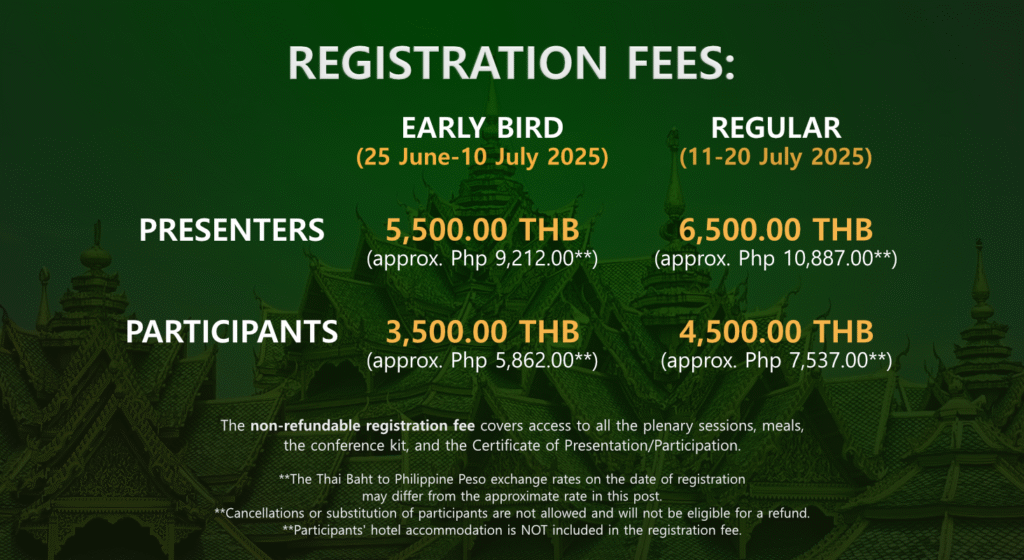
2nd INTERNATIONAL CONFERENCE ON RESOURCE MANAGEMENT & GOVERNANCE (RMUTCON2025 SPECIAL SESSION)
ABOUT THE CONFERENCE
In line with the university’s commitment to effective service delivery and its dedication to addressing global challenges, the Office of the Vice President for Research, Innovation, and Extension, through the Office of Research and Development Services (ORDS), will be conducting the 2nd International Conference on Resource Management and Governance – ICRMG (5th Asian Conference on Resource Management and Governance) with the theme, “Resource Management and Governance Beyond Borders: Pathways to Resilient, Innovative, Sustainable, and Equitable Future”.
The 2nd ICRMG will serve as one of the conference sessions of the Rajamangala University of Technology Conferences 2025 (RMUTCON 2025). The RMUTCON 2025, with the theme “ 9 RMUT: Driving Social Innovation Towards Sustainable Development,” is an event involving the 14th Rajamangala University of Technology National Conference (14th RMUTNC), 13th Rajamangala University of Technology International Conference (13 RMUTIC), and the 6th RMUT Innovation Awards 2025. The inclusion of the 2nd ICRMG in the RMUTCON 2025 will create academic cooperation, knowledge, and experience exchange between the RMUT, NwSSU, and other participants.
The 2nd ICRMG is anchored on the United Nations’ 2030 Agenda for Sustainable Development, encompassing 17 Sustainable Development Goals (SDGs), providing a comprehensive framework for addressing the different global issues. To make significant progress towards these goals, it is essential to foster multidisciplinary approaches that integrate diverse perspectives, expertise, and stakeholders in the fields of resource management and governance.
The inclusion of the 2nd ICRMG in the RMUTCON 2025 aims to serve as a platform for researchers, practitioners, policymakers, and community leaders to share knowledge, collaborate, and develop innovative solutions that contribute to effective resource management and governance in pursuit of the SDGs. By bridging multidisciplinary research and practice, the conference seeks to ensure that research findings are translated into practical applications and that the needs and experiences of communities inform research priorities and governance strategies.
The 2nd ICRMG aims to generate new insights, partnerships, and initiatives that can accelerate progress towards sustainable resource management and effective governance by bringing together a diverse group of presenters and participants, and fostering cross-sectoral collaboration. The conference will provide a space for showcasing cutting-edge research, impactful projects, sharing best practices, and identifying opportunities for synergy and collaboration across disciplines.
Through this conference, the university seeks to enhance its visibility as a leader in multidisciplinary approaches to resource management and governance for sustainable development. It aims to establish a dynamic network of individuals and organizations committed to advancing global sustainability, attract external funding and partnerships, and contribute significantly to the achievement of the SDGs.
The 2nd ICRMG represents a unique opportunity to reimagine and innovate in the fields of resource management and governance, leveraging multidisciplinary collaboration to pursue a more resilient, innovative, sustainable, and equitable future for all. Harnessing the power of diverse perspectives and innovative solutions, the conference aims to make a tangible contribution to the global effort to achieve the SDGs and create a better world for current and future generations.

The conference will focus on three main areas, encompassing all 17 SDGs:
- Resource Management and Environmental Sustainability: This track focuses on innovative approaches to managing natural resources and promoting environmental sustainability. It encompasses multidisciplinary research and extension efforts that aim to:
• Develop and implement sustainable water resource management and sanitation strategies (SDG 6)
• Advance renewable energy technologies and energy-efficient practices (SDG 7)
• Promote sustainable consumption and production patterns (SDG 12)
• Design and implement climate change mitigation and adaptation strategies (SDG 13)
• Develop approaches for sustainable management of marine and coastal ecosystems (SDG 14)
• Create innovative solutions for terrestrial ecosystem protection and biodiversity conservation (SDG 15) - Governance for Sustainable Development: This track focuses on effective governance systems and policies that promote sustainable development. Multidisciplinary research and extension efforts under this track aim to:
• Design and implement poverty reduction strategies through good governance (SDG 1)
• Promote policies for inclusive economic growth and decent work (SDG 8)
• Foster innovation in sustainable infrastructure and industrialization (SDG 9)
• Develop governance frameworks to reduce inequalities within and among countries (SDG 10)
• Create strategies for sustainable urban planning and community development (SDG 11)
• Strengthen institutions to promote peace, justice, and inclusive societies (SDG 16)
• Enhance multi-stakeholder partnerships for achieving sustainable development goals (SDG 17) Multidisciplinary Approaches to Social Progress: This track focuses on integrating diverse disciplines to address complex social challenges. Multidisciplinary research and extension efforts under this track aim to:
• Develop innovative approaches to food security and sustainable agriculture (SDG 2)
• Design multifaceted interventions to improve health outcomes and well-being (SDG 3)
• Create and implement inclusive and quality education strategies (SDG 4)
• Promote gender equality and women’s empowerment across various sectors (SDG 5)
- Resource Management and Environmental Sustainability: This track focuses on innovative approaches to managing natural resources and promoting environmental sustainability. It encompasses multidisciplinary research and extension efforts that aim to:

Each track emphasizes the importance of:
• Innovative collaboration across disciplines and sectors
• Integration of research findings into practical applications
• Community engagement and participatory approaches
• Use of emerging technologies and data-driven solutions
• Adaptive strategies to address complex and evolving challenges
• Knowledge sharing and capacity building





